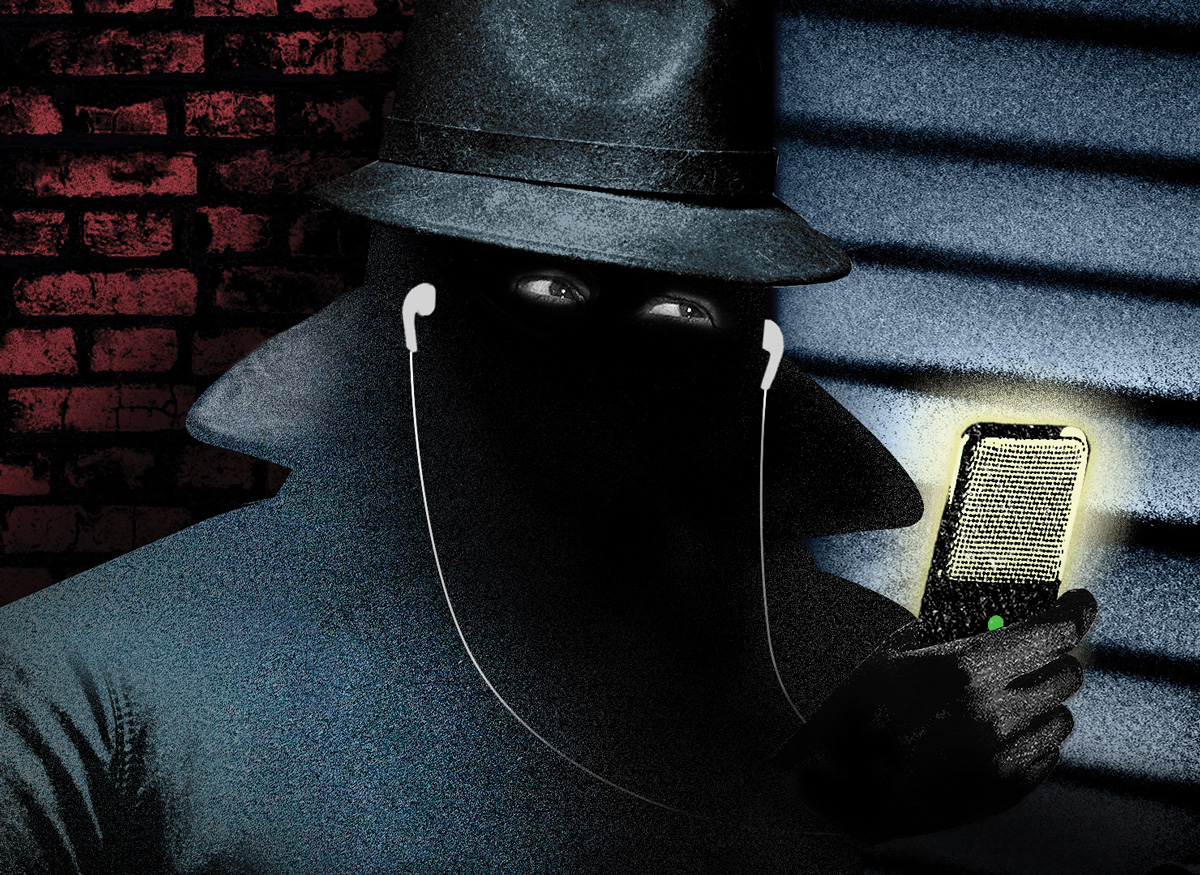
Illustration by Wes Duvall
Two years ago Payne Lindsey appeared close to living out his childhood ambitions. The 29-year-old Kennesaw native, who got his first video camera when he was 10, had established a local name for himself directing TV commercials and music videos.
But Lindsey yearned to tell stories about real life. He made a 13-minute documentary about people he’d met on a cross-country trip and took the film on the festival circuit. Next he wanted to do something bigger.
Then in December 2015, Netflix premiered Making a Murderer, the 10-episode documentary series that cast doubt on the case against two Wisconsin men serving life sentences for a 2005 murder. “Watching that show, something clicked,” recalls Lindsey. “I said, ‘I want to do that.’”
When he began research for what would become Up and Vanished, a multiepisode true-crime podcast, Lindsey could not have predicted it would draw more than 10 million listens. Or that he’d be interviewed on local TV newscasts and Good Morning America. Or that his sleuthing might help spur an as-yet unidentified tipster to step forward in February with information that could end up solving a 12-year-old Georgia murder case.
In fact, when Lindsey started work on the project in January 2016, he didn’t even have a case in mind. Typing “Georgia cold cases” into Google, he began searching for a long-unsolved missing persons case within a few hours’ drive, preferably one in which no body had ever been found. “I wanted it to be as open-ended as possible,” he says. “It’s human nature to try to make sense of mysteries. It bothers us when we don’t know.”
Lindsey came across the case of Tara Grinstead, a 30-year-old former beauty queen who was working as a high school teacher in the South Georgia town of Ocilla when she disappeared from her home in October 2005. Police found Grinstead’s front door locked, her car in the carport, and her cell phone charging—but her purse and keys were missing. A single latex glove was found lying in the front yard. The investigation created the largest criminal case file in Georgia history, but law enforcement never identified a suspect or unveiled a significant lead. As of last year, the Georgia Bureau of Investigation appeared no closer to cracking the Grinstead case than they were on the day she disappeared.
Lindsey, who originally had hoped to make a documentary film, quickly realized he couldn’t raise enough money to shoot interviews on location. “But I knew I could produce a podcast at home in my boxers,” he says.
After posting a query about the case on Websleuths, an online forum for armchair detectives, Lindsey heard from Maurice Godwin, a North Carolina–based private eye who’d been hired by the Grinstead family following Tara’s disappearance. He shared leads and contacts and advised Lindsey to beware “white rabbits”—evidence that seems significant but leads down endless, dark holes.
At first Lindsey treated Up and Vanished like a side project, working in calls and visits to Ocilla around his regular commercial projects. His initial efforts were met with hang-ups and even threats. Over time, however, he talked to enough people for word to get around town—and among Grinstead’s inner circle of friends—that he was sincere.
By late summer Lindsey had gathered enough information to launch the podcast. Creating a dedicated website, he debuted episode one of Up and Vanished, which clocks in shy of 24 minutes, in August, a month before his own wedding.
Right away the podcast captured the attention of folks in Ocilla and beyond, with 5,000 downloads in the first 24 hours. Tips from listeners began to shape subsequent installments. He examined alibis and interviewed one of Grinstead’s former students who claimed he’d had an affair with the victim. He asked lawyers, detectives, and forensic pathologists to explain evidence. Lindsey even took listeners along as he collected dirt from the crawlspace of a vacant house and another home that had mysteriously burned down days after Grinstead’s disappearance—and where cadaver dogs had later signaled the presence of human remains.
After a couple of months, Lindsey made the podcast his full-time job. His business partner helped with the master plan and branding, and his new bride offered support. Despite spending thousands on travel expenses and production costs, Lindsey was prepared to do “whatever it took to get this off the ground.”
About three months in, the podcast went viral, vaulting high into iTunes rankings and attracting sponsors—along with a fan base that debates the case and critiques the production on message boards. The first episode alone has now been downloaded more than a million times. Lindsey signed with an agent who has helped him field offers from production companies that want to turn Up and Vanished into a TV series, for which Lindsey would be the host and executive producer.
The GBI’s out-of-the-blue announcement on February 24 that Ryan Duke, a former student of Grinstead, had been charged with her murder, came as a surprise to most of Ocilla—and to Lindsey. A few days later, another suspect, Bo Dukes, also was charged in connection with the crime. Although the GBI didn’t directly link the podcast to the breakthrough tip, officials made a point of thanking the media for keeping the case in the spotlight.
With several more episodes to go in his scheduled series of 18, Lindsey looks forward to following new evidence—and even hopes to persuade Duke to do a jail house interview. “My audience has learned, as I have, not to jump to conclusions,” he says. “We just want to find the truth—wherever it leads.”
 Cold cases
Cold cases
Five more unsolved crimes that deserve another look
Tara Baker
Athens, 2001
Police say someone killed Baker, then a University of Georgia law student, and then torched her apartment.
The Wideman family
Rebecca, 2002
A 51-year-old county tax assessor, his wife, and their pregnant daughter each were shot and killed before their home was set on fire.
Douglas Edgell
Atlanta, 1998
A New Jersey businessman waiting to fly home fell ill at the airport and later died. An autopsy said he suffered blunt force trauma to the head during his stay.
Anthony Lee Dye Sr.
Commerce, 1996
The restaurateur was shot and killed while closing his barbecue joint for the night. Police think the bullet was fired from “a considerable distance.”
Laneshia Crowder
Carrollton, 2000
The mother of two was brutally beaten to death in her home. The only witnesses: her seven-year-old son and her toddler daughter.
This article originally appeared in our May 2017 issue.













